2021 Mahindra Thar review, road test
This second-gen Thar is far more polished than its predecessor. But how is it to live with? We find out.
Published on Apr 18, 2021 03:10:00 PM
2,72,540 Views
Follow us on
Being a ladder-frame construction, the tough-as-nails Thar has an air of indestructibility when it encounters bad road surfaces, just like its predecessor. Now, with a double-wishbone front suspension, a multi-link rear suspension, and a more rigid structure, this new one’s dynamics are much better. It feels tighter, more composed and infuses a lot more driver confidence than the first-generation Thar. But when it comes to its on-road ride comfort and its bump absorption capability, there is still a greater scope for improvement. The on-road ride is on the busier side, and there is prominent body movement felt inside the cabin at all speeds. You will always be aware of the road condition, and this body-on-frame SUV simply can’t match monocoque levels of suppleness.
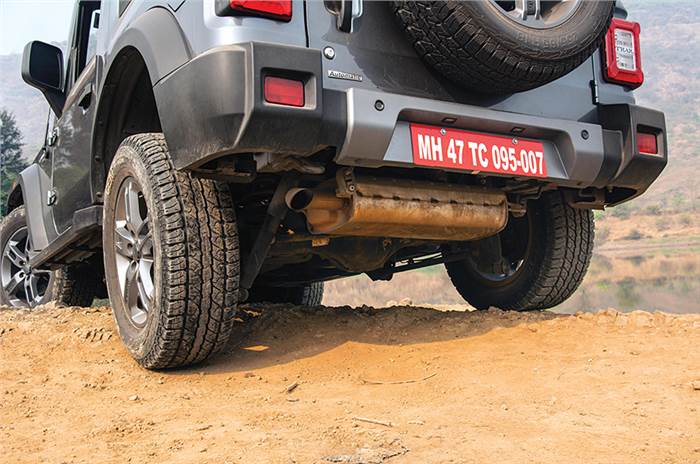
It still makes-do with a hydraulic steering but the good news is that it is light and smooth, so it is easy to drive this car through traffic. Yes, you will need more locks than other cars while parking or making a U-turn, but its lightness brings down the twirling effort to a great extent. With nearly 3.36 turns lock-to-lock, what comes in handy, especially while off-roading, is the steering position reminder on the MID that informs the driver of the position of the front tyres before starting off. One thing that is carried over from the older car are the steering kickbacks after hitting sharp potholes or while cornering, although these are not as aggressive as before. Its brakes do a respectable job of shedding speed and even under panic braking scenarios, the Thar doesn’t lose its composure. However, the brake feel on the automatics lack bite and aren’t as reassuring on the manual. We are told this issue is because the spring in the brake booster system is differently tuned for the two-pedal layout in the automatics, which results in a pedal feel that is not as linear as in the manual Thar. However, the company is believed to be recalibrating the spring.
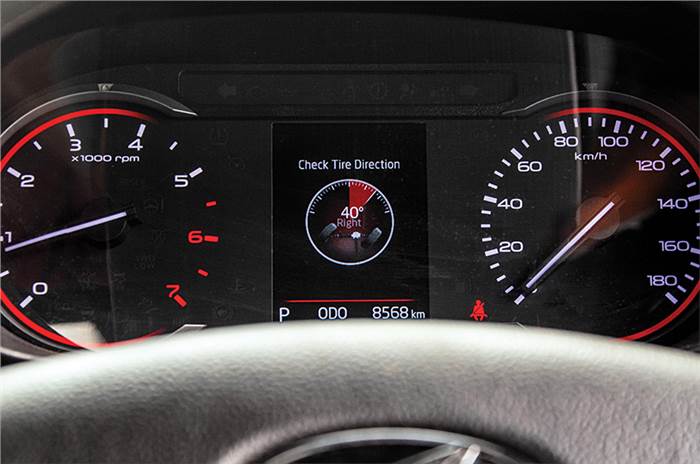
OFF-ROADING
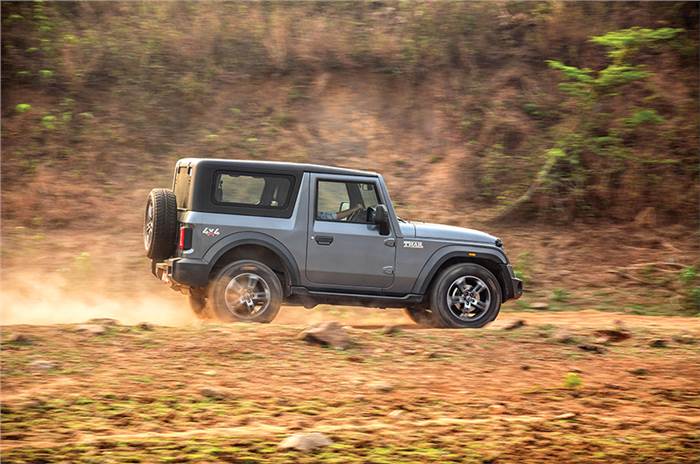
Take the Thar off the beaten path and you’ll truly appreciate this car for what it is. Rolling on fat Ceat All-Terrain tyres, and armed with a four-wheel-drive low-range gearbox, this one scampers over any terrain like a mountain goat. This new Thar sits 16mm higher above the ground than the older Thar; its ramp-over-angle has improved to a significant 27 degrees, and even its departure angle, at 36.8 degrees, is far greater than the 27 degrees before. Its front bumper, however, juts out a bit more than before, to comply with pedestrian protection norms, and as a result its approach angle is 41.8 degrees, 2.2 degrees lesser than before, but that’s hardly a cause for concern. Interestingly, its air intake has been repositioned, making it capable of traversing through 650mm of a water body without breaking a sweat.
| Mahindra Thar Price, Mileage, Specifications, Features and Variants | |
|---|---|
| Brand | Mahindra |
| Model Name | Thar |
| Mahindra Thar Price | ₹ 11.46 - 19.37 lakh |
| Mahindra Thar Range/Mileage | Petrol : 15.2kpl | Diesel : 15.2kpl |
| Mahindra Thar Specifications | SUV | 3 doors | 4 seats View All Specs |
| Mahindra Thar Features | Halogen headlight | 7-inch Touchscreen display | 2 airbags View All Features |
| Mahindra Thar Variants | 1.5 Diesel MT AX (O) 4x2 Hard Top | 1.5 Diesel MT LX 4x2 Hard Top | 2.0 Petrol AT LX 4x2 Hard Top View All Variants |
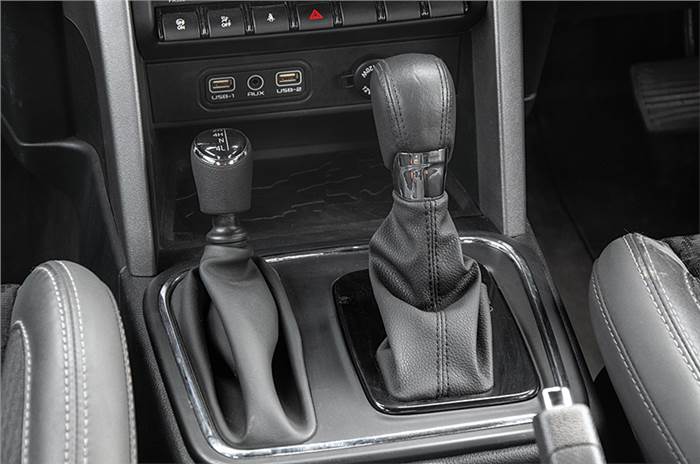
This second-generation Thar uses a modern, double-wishbone setup in the front, but the big news is the shift from leaf-springs to independent coil-springs at the rear. Wheel articulation, as a result, isn’t as generous as before, but because of this new suspension setup and a wider track (front and rear) there’s so much mechanical grip on offer that it simply claws onto the surface and sails through the trickiest scenarios, many where even the highly capable older-gen model begins to struggle. What further enhances its ability to overcome sticky situations is a host of driving aids including ESP, hill-start assist as well as hill-descent control. The clever inclinometer and other driving information display on the screen as well as the MID will certainly win praises from those who appreciate tech and gizmos.
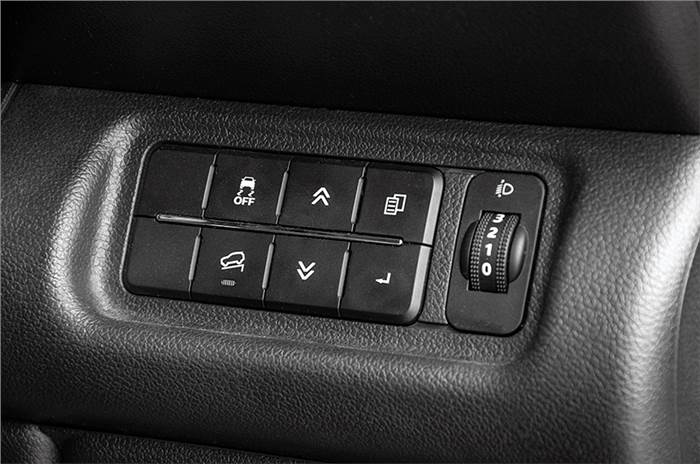
Copyright (c) Autocar India. All rights reserved.





Comments
Member Login
Personal Details
No comments yet. Be the first to comment.